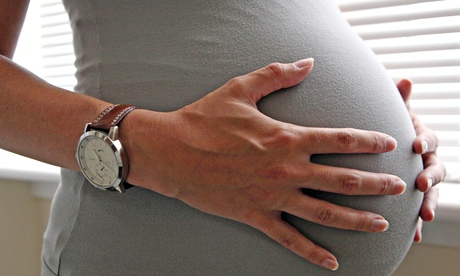Many mothers are having their baby by caesarean section before they are 39 weeks pregnant even though hospitals should avoid such procedures because they pose a risk to the child, according to a report into maternity care. In some hospitals, more than 40% of all women giving birth are undergoing a C-section before their pregnancy has reached full term even though there is no medical reason for doing so, the report says.
Official NHS guidance tells hospitals not to deliver by C-section in such circumstances because it can lead to the infant needing to be admitted to intensive care with breathing problems.
The large number of hospitals across England still carrying out the operation on women with uncomplicated pregnancies is revealed in the report by the Royal College of Obstetricians and Gynaecologists (RCOG).
“We are particularly concerned about the variation among the number of women having elective caesarean sections before 39 weeks without any clinical indication,” said Dr David Richmond, the RCOG’s president. “National Institute of Health and Care Excellence guidelines recommend that elective caesarean section in uncomplicated pregnancies should not be carried out before 39 completed weeks of gestation because of the increased risk of breathing problems for the baby and being admitted to intensive care.”
The research, into variation in 18 different types of procedures involving childbirth, has been undertaken by the college and the London School of Hygiene and Tropical Medicine, and is based on NHS childbirth data for 2013-14. It shows that as many as 43.9% of mothers whose baby was born in the care of Worcestershire Acute Hospitals NHS trust that year had a pre-labour C-section before 39 weeks, despite no clinical indication that it was needed – the highest percentage in England. Rates were also high at the Royal Devon and Exeter NHS foundation trust (42.8%) and East Cheshire NHS trust (42.7%).
By contrast, only 3.7% of mothers had their baby by C-section at James Paget University hospitals NHS foundation trust in Great Yarmouth, Norfolk, well below the England-wide average of 24%.
The report highlights wide variations in women’s chances of giving birth in a variety of other ways – which it calls a worrying “postcode lottery”. For example, in some places, 8.3% of first-time mothers have an emergency C-section, but in others it is almost twice that, at 15.3%. Similarly, women are much more likely to have their baby induced, or experience an instrumental delivery, suffer a tear during their labour or be readmitted within 42 days of the birth at some hospitals compared with others, the report shows.
“Pregnant women should not have to endure a postcode lottery and it is unacceptable that these variations in maternity care are reported year after year,” said Elizabeth Duff, the senior policy adviser at parenting charity NCT.
Richmond said trusts should study their performance data and make changes to their clinical practices and judgments if necessary in order to ensure that women are receiving the best possible care.
Louise Silverton, the director for midwifery at the Royal College of Midwives, said: “This latest report shows that there are still concerns about variation between maternity services and the care they provide. It is unfortunate that this continues and is mirrored in outcomes of stillbirth rate and perinatal deaths.”










